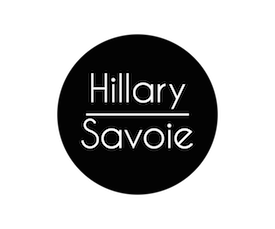It’s such a tiny little word, but it has so much impact: No.
And there are times when I feel certain that some of the systems in place to “help” children like mine count on exactly that: That if the path is arduous enough, the answers obscure enough, the wheels slow enough that maybe parents will throw in the towel and accept less than what their child needs. Maybe they’ll give up on the paperwork for Medicaid disability, or stop arguing for prior approval for a medication, or accept a school placement under less than ideal circumstances, or follow less than satisfactory medical advice. It seems at times that these systems are built more to demonstrate that they are doing something for children like Esmé while really only offering various forms of de facto “nos.” All of this in place of actively doing something to help children like Esmé.
In my case, thankfully for Ez, there is no better way to make me stick to something than to tell me “no” for bureaucratic reasons. Perhaps that says a lot about me, and perhaps that should embarrass me some, but it has been the single best asset I bring to the table in parenting Esmé. It makes me angry for the waste of my time, for the lack of consideration for my child, and, perhaps most of all, for the families that do not have the ability to wait on the phone, to show up to the meetings, to follow the paperwork, to stand up to a person in a position of authority–to turn de facto (and real) nos into yeses for their children.
Yesterday I spent a bunch of time dealing with yet another one of these situations–trying to chart a course for Esmé’s school plan with our district, county, and state. This conversation seemed to be intended to suggest that my role in making decisions for the circumstances of my child’s education should be rather that of a token representative who should be seen and not heard–that the place was not mine to collect information about possible precedents found in other families’ solutions or to use my rather extensive experience with my child in order to take part in a creative discussion of a schooling solution that sets Ez up for success rather than concedes her current situation or waits for catastrophic failure.
These are the kinds of non-answers that assure the status quo where children are forced into column a or column b for administrative ease. The kind of nos that discourage people from learning about what is possible, and that keep children like Esmé from striving for and achieving whatever form of “yeses” life might offer them.
I see it as my responsibility to my daughter to find ways to uncover yeses for her…this is why we let her explore her world (including all the little bumps and tumbles that come with it) more than my tender mommy heart wants to. This is why we have gone through scads of doctors in order to find ones that can help us offer Esmé the best possible chances in life. This is why I spend hours of my day researching the tiniest details of the simple things that surround her daily–obsessing over the right kind of bed, or chair, or spoon…the right structure of care or schooling or communication systems.
It is all about creating a structure of possibility, rather than one of limitation, for her. I do not mean this in a naive way–in a way that denies that Esmé is certainly quite different from most of her peers–I mean it in a way that acknowledges and accepts those differences while celebrating that she will have different abilities to nurture. I cannot know what is possible for Esmé, so I need to be certain that we do not close doors on her.
Assuming that she is not able to do something is as dangerous to her future as putting her into situations without the proper supports. But there is no way to know until we try–and sadly many of the structures we deal with work only in black and white, not in the gray areas we need to explore. For example, Ez is apparently not terribly interested in her peers, but she seems to learn from them (and get exhausted for interactions with them). She is very clever and is learning things on her own, but she clearly cannot always demonstrate her knowledge in overwhelming situations. She is vulnerable around mobile peers since she isn’t steady in a seated position, but she cannot stand to be restrained in a seat for any extended period of time. She has a report with the individuals we’ve been working with over the years–she trusts that they understand her non-verbal queues to keep her comfortable and safe–but she needs to expand her horizons and become more flexible, especially with respect to communication.
If we push her too hard on some of these things she might loose ground with her health. If we hold still when she’s ready to move we might miss an important opportunity. She needs a creative and flexible solution–as do many children with multiple complex medical and developmental needs. They need people to say yes to doing things a bit differently, to thinking creatively on a case by case basis. This is how we have managed to help Esmé make the gains she has made…many of which would be assumed impossible by someone reading her medical file or CPSE documents or developmental testing.
But such solutions are not “easy” to administer–and, frankly, they aren’t “easy” to parent around either. And, here’s the thing, that doesn’t matter. It isn’t about the ease of the school board, or the county, or the state…it isn’t about the ease of my life. It is about saying “yes” to providing a safe and flexible approach to Esmé that does not compromise her access to services or an education…which she deserves no matter how people perceive her “potential” or her abilities.
This part isn’t up for debate.
And I can’t stop wondering how much easier this process would be if instead of de facto nos, I was hearing “How can we reasonably make this work?” If rather than being blocked at every turn, parents like myself were welcomed as knowledgable partners in the process of designing an attainable plan for a child. This won’t lead to perfect solutions–but certainly might lead to less imperfect ones.
Until then, I’ll be saying no to no, until some of those nos turn into yeses.


I felt the same way until I had enough and then basically said my way or the highway to the school district. Good luck!
I'm sorry this is proving so frustrating. Us mamas have to keep pushing, as disheartening as it can be that we even have to push in the first place. I've learned that I have to repress my frustration at the process (easier said than done at times, for sure) and keep the eye on the prize: My son. And to know when I can make compromises and when I absolutely cannot.